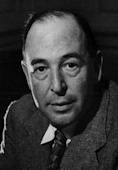I put this picture on the
Internet without a copyright notice, so you can use it however you want, right?
Wrong.
Posting something on the
Internet does not change its copyright status any more than publishing it in a
magazine does. And the current copyright law doesn’t require either
registration or a copyright notice.
I took the photo last
summer while driving through Utah. It was copyrighted the instant I took it,
and I don’t lose the copyright by posting it on the Internet.
Although a copyright
notice isn’t necessary, it does inform the reader who might otherwise copy out
of ignorance. I don’t include a formal copyright notice with each individual
post on my personal blog, but the site itself contains this warning:
The material on this blog is copyrighted unless otherwise
noted. You do not need permission to include links to this blog. To ask
permission for other uses, contact me at [e-mail address].
Ignorance is no excuse,
of course, and it won’t protect you if someone charges you with copyright
infringement for the material you use on your blog or anywhere else. So don’t use anything
you are unsure about. With a few exceptions that are beyond the scope of this
post, you should get permission to use any material that is not clearly in the
public domain. This includes photos and artwork and text and even music.
So what material is clearly
in the public domain?
- Material
that was published in the United States before 1923. Works that were
created or first published in another country may have a longer copyright
in those countries, so you may have to be careful about distribution. Some
material published after 1923 is also in the public domain, but that is
more complicated to figure out.
- Material
produced by federal government employees in the course of their official
duties. This includes opinions issued by federal courts and reports and
photographs created by employees of federal agencies.
- Material
that cannot be copyrighted, such as names and titles, short phrases and
slogans, ideas, and facts. However, names and titles and short phrases and
slogans can become trademarks, which entitles them to a different kind of
protection. And although ideas and facts cannot be copyrighted, the expression describing them can be.
Some creators waive the
copyright by marking their material with “no rights reserved.” Whether this
actually puts the material in the public domain depends on the jurisdiction. At the
least, however, it gives the public a blanket permission to use the material. Still,
it is best not to rely on the “no rights reserved” tag unless you have good
reason to believe that it was added by the person who would otherwise own the
copyright.
But, you ask, aren’t
there some situations where I can use copyrighted material without getting
permission? Of course there are. It’s called “fair use.”
That will be the subject
of next month’s post.
__________
Kathryn Page Camp is a
licensed attorney and full-time writer. Her most recent book, Writers in Wonderland: Keeping Your Words
Legal (KP/PK Publishing 2013), is a Kirkus’
Indie Books of the Month Selection. Kathryn is also the author of In God We Trust: How the Supreme Court’s
First Amendment Decisions Affect Organized Religion (FaithWalk Publishing
2006) and numerous articles. You can learn more about Kathryn at www.kathrynpagecamp.com.





